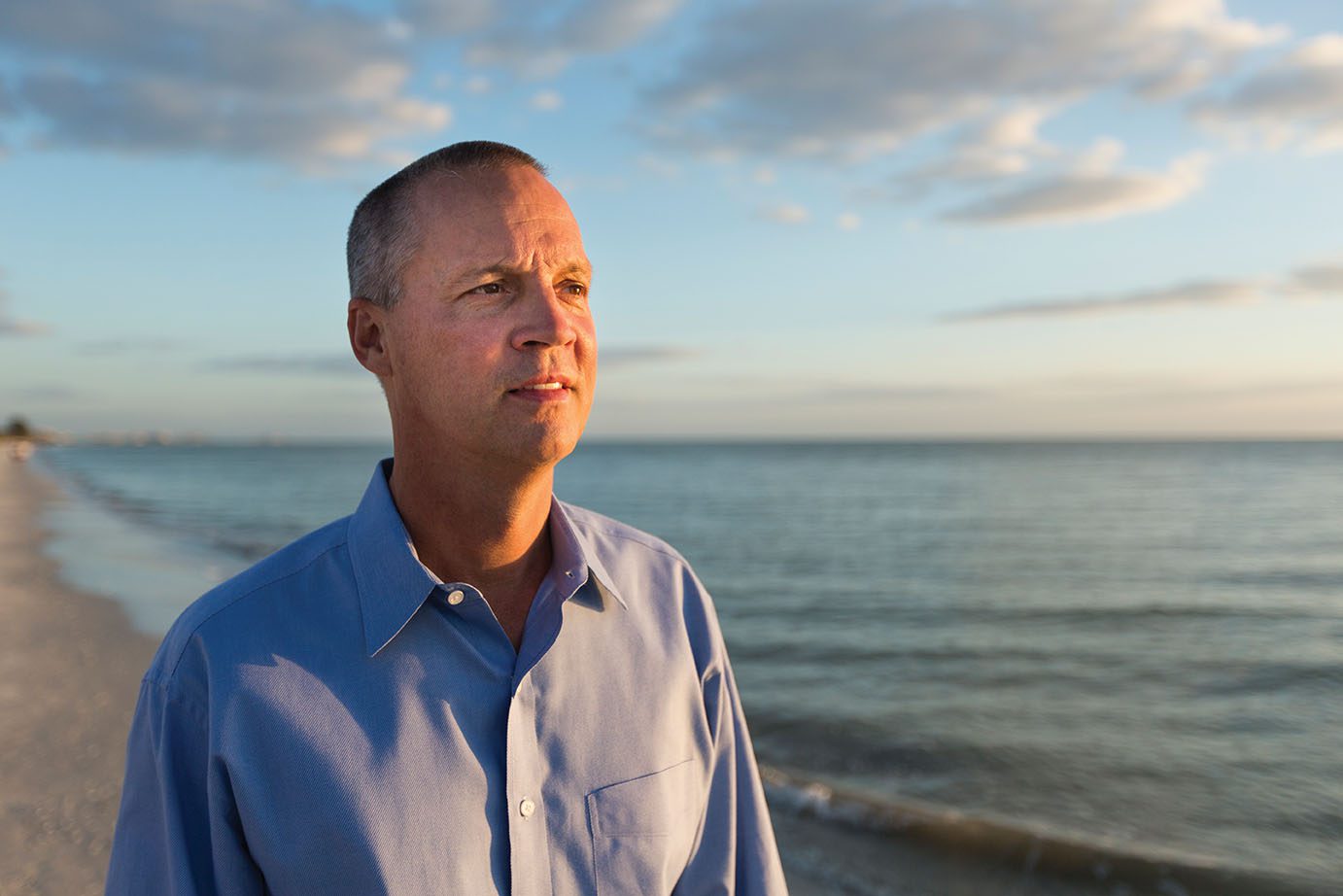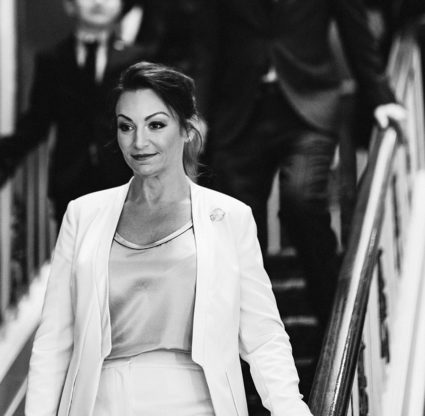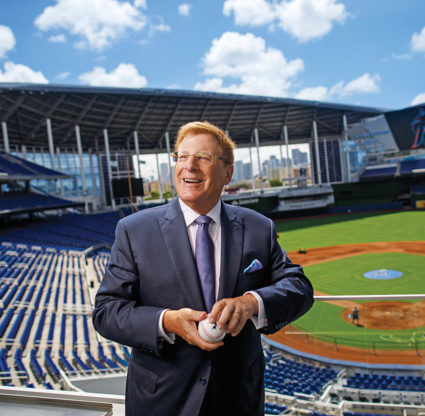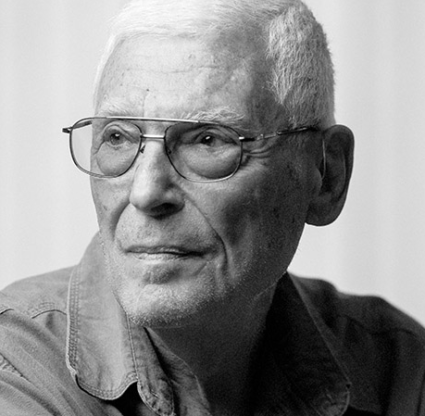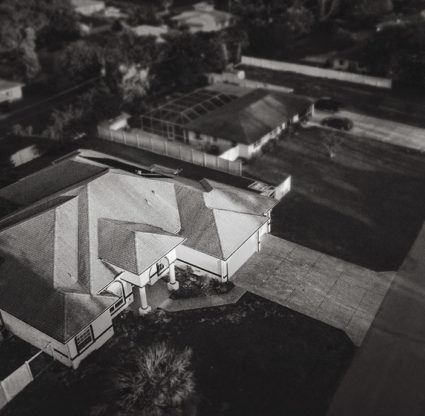Given the widespread response to terms like “politician” and “Congress,” and the raging election successes scored this year by total newcomers to the process, maybe it’s no surprise that everybody wants to be an outsider now.
But Southwest Florida’s U.S. Rep. Curt Clawson ran as an outsider before it was cool, and if you think all politicians are easily categorized, you don’t know Curt.
His political record after barely two years in office is readily available. A quick Google scan provides highlights: elected handily, with tea party support, over better-known opponents; delivered the tea party response to the President’s State of the Union address; opposition to ex-Speaker John Boehner; and, most recently, deep immersion in Southwest Florida’s water quality crisis.
The person behind the politics, however, is more of a puzzle. And the phrase “not a typical politician” has rarely been used so often, by so many, as by those who do know Curt Clawson.
“Curt is an incredibly hard worker, and one thing that makes him unusual is that he knows what he doesn’t know, and he’s not too proud to ask questions and learn,” says Chauncey Goss, a Sanibel Republican who worked for Congress for years and ran unsuccessfully for Congress in 2012. “Curt was a tremendously successful businessman. He’s not defined by being in Congress. He doesn’t calculate issues and decisions based on how it affects his re-election; he makes decisions based on what’s best for the district and his personal convictions.”
Virtually every weekend finds Clawson, 56, back home in Southwest Florida, not only tending to his family—his mother died last year after a long illness, and his father now needs attention and care—but also meeting with constituents and attending local events. While others may jet off to soirées with wealthy donors, or stay in the capitol to schmooze with the politically powerful, Clawson prioritizes staying in touch with people at home.
He prefers holding meetings at places like coffee shops—Starbucks is a favorite—not only because he thinks people are more at ease there, but because he invariably runs into others with a concern, a problem, or who just like seeing their congressman hang out in a regular kind of place. Some politicians avoid such constant casual encounters. Clawson doesn’t just welcome them; he seeks them out.
At town hall gatherings, Clawson often eschews a podium. Instead of making a speech, he mingles with the crowd, making time for real, one-on-one conversations.
Suits and ties are for Washington and formal events; at home he’s at ballgames or meetings most often wearing a jacket over a T-shirt—frequently one promoting Florida Gulf Coast University’s Eagles—or a button-down.
 |
|
Curt Clawson with his late mother, Cherie, at a campaign event. |
Wilbur Smith, a former Fort Myers mayor, admires Clawson’s sartorial freedom, saying more people should emulate that attitude. “It speaks to his lack of ego. He takes the job very seriously, but he doesn’t take himself so seriously,” Smith says. “It’s like the smile he always has on his face. It makes him more approachable.”
Smith says it’s clear to him that Clawson is not in office because he needs the money or the ego gratification, or because he can’t find a better job or wants to climb the political ladder. That might hold true for many politicians, Smith says, but not Clawson. “He doesn’t need a job,” Smith says. “Curt is genuinely motivated by a sense of service. He wants to make a difference.”
There are countless examples of what makes him different. Pinning down the “why” behind those differences is harder. But one thing friends point to—and Clawson makes clear in almost every speech or conversation—is his family, especially his mother.
Family and Business
The middle child in a family with seven children, Clawson spent most of his younger years in Mississippi. His mother was an elementary school teacher, his father worked in manufacturing. “They were typical of the Greatest Generation,” Clawson says. “They weren’t into therapy and self-absorption. … They taught us that you put the family and the team ahead of yourself. You don’t whine, you work hard, and you go to church.”
His father’s life revolved around church (Mormon), family, work and sports. His mother, he says, shared those priorities—and also always watched out for the underdog, adding volunteer work with homeless single mothers to her schedule.
“Curt was always very focused, very assertive,” says his brother Craig Clawson, who’s three years younger than Curt and the CEO of Magic Tilt boat trailers in Tampa. Another brother is CEO of Culligan water company.
But Curt stood out even in a family of high achievers. “He wouldn’t do anything unless he could be the best at it,” Craig Clawson says. “He was always determined, and he worked hard. When he was middle school, he practiced basketball two hours every day.”
He also got his two front teeth chipped in a schoolyard fight, defending a smaller boy against a bully. “Curt’s always been very compassionate, just like our mother, but he’ll push when he needs to,” Craig Clawson says.
The family moved to Indiana when Clawson was 17, and his basketball skills led to a scholarship at nearby Purdue. Staying close to his parents was also a reason for choosing Purdue, Clawson says, but his basketball skills expanded under the leadership of coach Gene Keady. In 1984 Clawson was senior captain on the team, and he made two clutch free throws to cinch the Big Ten championship
But Clawson also recalls that as a sophomore, he missed a clutch free throw that contributed to a loss. “It was actually a great experience for me,” he says. His father told him that incident would show what kind of man he was. Pouting was weak. Returning to practice with enthusiasm and hard work showed strength. Clawson went back to practice with his head up and worked even harder.
 |
|
Curt Clawson with former Purdue basketball coach Gene Keady. |
A similar lesson came a year or so later from his coach, who wanted him to play a less visible, lower-profile position on the team. The move did little to promote Clawson’s basketball future, Keady told him, but it was best for the team.
Clawson took the new position. “My dad was always all about the team,” Clawson says. “He taught fairness in a group perspective. … It may not have been the ‘best’ for me, but it was best for the team.” It was an important lesson, he says, and the decision led to the championship.
Today, Keady says Clawson’s leadership skills and teamwork were clear even then. “He was always about what helped the team. He wasn’t just concerned with himself and how he looked.” Clawson had natural talent, Keady says, but it took work to reach those levels, and Clawson never balked at practice.
After college, Clawson spent a year in Mexico on a Rotary scholarship, and returned to a job with car parts manufacturer Arvin Industries, chosen in part because it was close to his family. He lived at home for a year, then Arvin sent him to Harvard for his MBA.
The choice of which school to attend was open, and Clawson was initially attracted to a smaller school, perhaps the University of Virginia.
His father said Harvard.
“He wasn’t the kind of father who was always yakking at you with advice,” Clawson says. “This was one of the few instances, maybe two or three, where he told me what he thought I should do, so I listened, and he was right.”
It was also at Harvard where he met the fellow student who’d become his wife. They divorced after several years together, but he says they remain close and in regular contact.
He returned to Arvin and later worked at several other companies—largely manufacturing—until joining Hayes Lemmerz International, another automotive parts manufacturer, in 2001. The company was in financial distress when he arrived, and Clawson, as CEO, restored its financial soundness.
That led to the company’s sale in 2012, when Clawson retired at age 50. Roll Call newspaper now ranks him 40th in the top 50 wealthiest members of Congress, with an estimated net worth of about $9 million.
 |
|
Team shot, 1984. Curt Clawson is No. 33. |
In Southwest Florida
When Clawson retired, his parents lived in Bonita Springs very near the beach, a decision driven by his mother’s love of the water. Clawson shared that attraction—he’s an avid scuba diver—and wanted to be with his parents. His mother’s health was not good, and his father also needed support.
“Taking care of our parents was his main gig then,” said his brother Craig. “I thought he’d probably get involved with some boards, but I didn’t expect him to sit still for too long. But I knew he could go back into business” when and if the circumstances changed.
No one suspected a sea change was ahead, Clawson least of all. But the water quality problems that plagued Southwest Florida two years ago became the impetus for Clawson’s new career.
The pollution problems were evident on Bonita’s shores, and Clawson’s mother was upset over despoiling of her beloved beaches. At his parents’ urging, he became active in local efforts to clean things up, meeting several local politicos in the process.
Then came Rep. Trey Radel’s post-arrest, midterm resignation in January 2014. Several well-known political figures considered the race, but Peter Simmons (elected Bonita Springs’ mayor in March) told Clawson he should run.
The thought had never entered Clawson’s head. He told Simmons no, but when he told his parents of the proposal and his refusal, they had other ideas. “My father told me, ‘If you’re not going to act, not going to do something about it, you can’t complain,’” Clawson says.
Once again, he took his father’s advice.
He also met with a consultant, John Yob, who often works with tea party-aligned candidates. Yob usually handles larger races such as governor or U.S. Senate, but agreed to meet with Clawson in part because of mutual friends.
“When I met him, I could see that he was perfect for the times and for the district,” says Yob, who took on Clawson’s first-ever campaign but no longer consults for him. “His background was very appealing, with the basketball and his former position as CEO with a Fortune 500 company, and his personality was perfect for the times. He’s conservative, but he’s not bombastic, he’s not weighed down with negativity. … He had that perfect combination of real-world experience and attractive personal traits.”
Clawson says others convinced him he could make a difference in office. He ran as an outsider new to politics, spent about $4 million of his own money and defeated three others—including two past and present state legislators—in the April GOP primary with 38 percent of the vote.
Given that the GOP primary has decided partisan races for years in conservative Southwest Florida, his victory in June with 67 percent of the vote against a Democrat and a Libertarian was almost anticlimactic.
 |
|
Curt Clawson with his father, Jack, in Bonita Springs. |
The Mission Comes First
Since then, Clawson’s life has changed dramatically. He no longer has time for the scuba trips he frequently made to places including Australia, the Red Sea and the central Pacific’s Truk lagoon. He doesn’t date; in addition to his long work days, he says few women enjoy the public scrutiny that goes along with accompanying a congressman. A question about TV shows produces a puzzled look, until he recalls watching Blue Bloods and Elementary with his mother. As for books, it’s mostly nonfiction and commentary recommended by friends.
When he’s in Washington, he says his work days can extend beyond 12 hours. But he works out daily and remains within a few pounds of his college weight. Since he doesn’t take PAC money, nor participate in the usual rounds of fundraisers that constitute capitol social life, any open work nights are spent watching sports with friends.
Clawson’s brother Craig says Curt is unchanged by the position, and that while Craig never imagined Curt in politics, the work suits him. “He’s always had this drive to help others, and he’s always been good at team-building,” Craig Clawson says. “His success as a CEO came from his ability to talk with all sides and get everyone working together, and that’s something that carries over into Congress.”
Another plus he cites is Clawson’s ability to self-fund: “He didn’t take others’ money to get elected, and he doesn’t take it now. He can do what he wants to, what’s right, without worrying” about undue donor influence.
Clawson himself says money’s influence may be his greatest frustration with holding office. It’s not just the influence of special interests, but the time spent in pursuit of donations. “Donations are never free,” he says. “I don’t want my constituents to think my votes are influenced by special interests.”
Among his proudest legislative accomplishments? Passage of a bill—HR 890—that protects 17,000 acres of coastal land in Collier County. The measure passed, with bipartisan support, in a matter of weeks—almost unheard of in Congress these days. The few objections dealt with “government overreach,” but he believes it’s what his district wanted and good for Collier County. Environmental protection is an issue all sides can come together on, he says, pointing out the economic benefits.
But when it comes to the most gratifying aspects of holding office? “The lifelong friends I’ve made, the people I’ve been able to meet. That’s what’s important—that and doing the right thing for this district.”
Editor's note: After this story was published, Clawson announced that he will not seek reelection in 2016 to spend more time with his father and family. "Since my mother’s passing last year, our family has gone through significant change and transition. I believe that now is a good time to pass the baton and spend more time close to home," he said in a press release.

